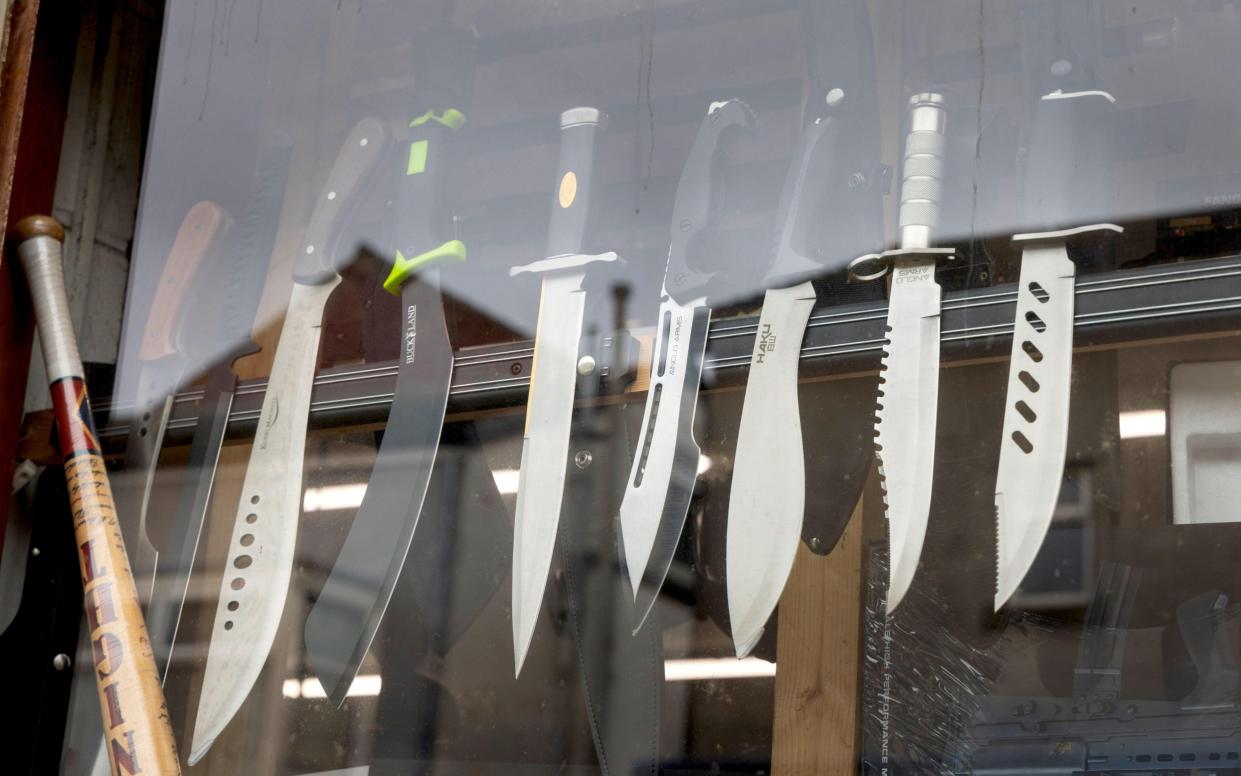Knife crime prison sentences hit record low

Jail sentences for knife offenders have hit a record low as judges have been told to send fewer people to overcrowded prisons.
The proportion of knife offenders given immediate jail sentences has fallen to 26.2 per cent. This is down from a peak of 42.9 per cent in 2020 and the lowest on record, according to Ministry of Justice figures for the quarter to September 2023.
More than four in 10 repeat knife offenders also escaped jail despite a law that they should be immediately imprisoned. There has also been a five per cent rise in knife crime to nearly 49,000 offences in the year to September 2023.
In the quarter to September 2023, 44.3 per cent of repeat knife offenders avoided prison – the highest proportion since a law was introduced in 2015 which stated a court must jail any offender convicted of a second or subsequent knife offence unless it would not be in the interest of justice to do so.
By contrast, the proportion of suspended prison terms being handed out by judges has increased to a 10-year high of 25.8 per cent, more than a quarter of the total. The remainder were given community sentences.
The shift follows an edict last year from Lord Justice Edis, the senior presiding judge of England and Wales, advising courts to jail fewer people because of the prison overcrowding crisis.
The Court of Appeal judge said courts should “have an awareness of the impact of current prison population levels” as he quashed a man’s six-month jail term and replaced it with a suspended sentence.
The Telegraph revealed earlier this month that ministers have been warned that prisons are on course to run out of space by spring.
Figures seen by The Telegraph showed that only 550 spaces remained in male prisons at the start of February, with 99.35 per cent of jail cells full.
Meanwhile, 113 spaces were left in women’s prisons which were at 97 per cent of capacity.
As a result, jail governors have been forced to ramp up the early release of prisoners under a scheme that allows them to let out inmates up to 18 days before the date they were due to go free.
Rory Geoghegan, the former Downing Street adviser on crime and founder of the Public Safety Foundation, said: “Sending barely one in four of those caught with a knife to prison is another sign of our soft on crime justice system favouring the rights of criminals over the safety of the law-abiding majority.
“Successive governments have failed to ensure sufficient prison capacity. These damning statistics and the Government’s proposals to stop judges jailing criminals are just the latest evidence of this.
“The fact that those caught for a second time are now avoiding prison nearly half the time shows just how far we are from having a zero tolerance and common sense approach to knife crime.”
A legal source said: “If we want prison sentences to work, we must have the capacity to punish wrongdoers, deter others and rehabilitate offenders who are imprisoned at great cost to the taxpayer as well as themselves and their families.”
There are more than 88,000 prisoners in jails in England and Wales but the numbers are projected to rise to up to 106,300 in March 2027. This is due to court backlogs being cleared, longer sentences and more offenders being convicted after the 20,000 increase in police numbers.
The Conservatives pledged to build 20,000 more cells by the mid-2020s and two new jails have been opened.
They are now understood to be close to capacity, while plans for three prisons in Lancashire, Leicestershire and Buckinghamshire have been delayed by problems gaining planning permission.
The pressure can be eased by the early release scheme. Some 400 were earmarked for the scheme, known as Operation Safeguard, last year.
However, further major changes in the Government’s new sentencing bill have yet to receive legislative approval from Parliament. These include reducing the number of offenders sent to prison for under 12 months under a presumption on judges and magistrates that they should instead be punished in the community.
The Ministry of Justice said: “More knife-carrying criminals are being sent to jail and for longer than they were a decade ago following our decisive action to protect the public.
“Knife offences have dropped since last year as we do everything possible to steer young people away from crime, and thanks to our tough sentencing reforms offenders who repeatedly carry a knife are more likely to face jail than 10 years ago.”

